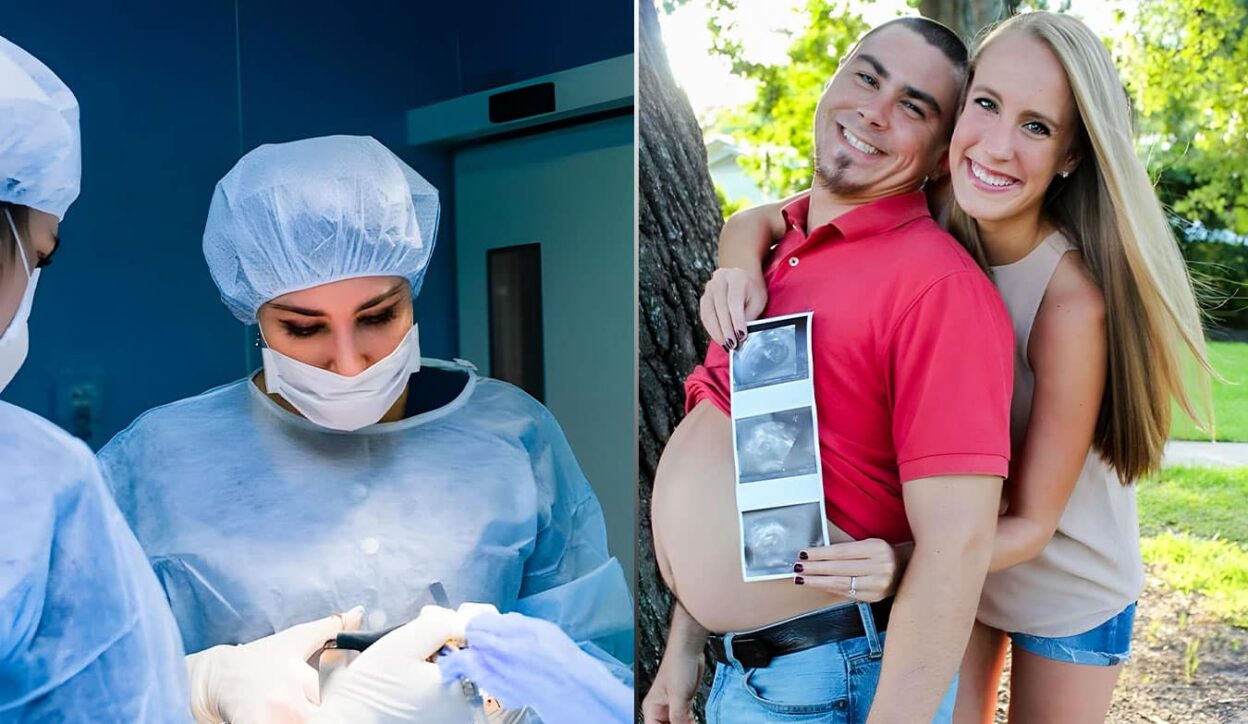In a groundbreaking medical achievement, a man becomes pregnant after successful uterus implant surgery, a development that has stunned the world and challenged traditional perceptions of pregnancy. This story marks a significant moment in medical history and represents a leap forward in gender reassignment and reproductive science. The groundbreaking procedure opens up new possibilities for transgender individuals and raises questions about the future of gender and reproductive rights.
This innovative medical procedure shows how science is advancing to make what was once thought impossible a reality. It brings attention to both the complexities and the possibilities within the realm of gender reassignment and the broader discussion of reproductive health for people across all gender identities.

The Uterus Implant Breakthrough: How It Happened
The idea of a man becoming pregnant has long been a subject of fascination and debate. However, it has now become a medical reality thanks to advances in uterus transplant for men. The procedure, which was first developed for women who were born without a uterus or had their uterus removed, has been adapted to suit men as part of gender reassignment surgery.
In this particular case, a transgender man who had transitioned from female to male underwent the procedure to receive a uterus implant. The operation took several years of research and development and involved a complex team of surgeons, gynecologists, and reproductive specialists. The goal was to enable a man to carry a pregnancy, a feat that had never been accomplished before.
The uterus transplant was successful, and the recipient is now pregnant, marking an extraordinary milestone in male pregnancy medical achievement. This feat not only proves that gender is not a limiting factor in reproduction but also opens up new possibilities for transgender men who wish to experience pregnancy.

Gender Reassignment and the Journey to Parenthood
For many transgender men, the desire for parenthood can be complex. While the process of gender reassignment allows individuals to live authentically in their gender identity, the biological process of pregnancy has always been inaccessible to them. However, this transgender pregnancy story demonstrates how modern medicine is changing the landscape of reproductive rights and possibilities.
The breakthrough of a man becoming pregnant after receiving a uterus implant brings hope to many transgender individuals who wish to experience pregnancy. The medical community’s ability to offer options like this could change the future of family-building for transgender men, who have often been excluded from discussions surrounding parenthood.
This development has also sparked broader conversations about gender, biological sex, and the social constructs that often limit our understanding of reproduction. Many are now considering how these new advancements could impact both the transgender community and society at large.

The Ethical and Social Implications of Male Pregnancy
As revolutionary as this male pregnancy medical achievement is, it also raises important ethical and social questions. One of the most pressing concerns is the impact on societal views of gender and parenthood. If men can become pregnant with the help of advanced medical procedures, how does this shift our understanding of traditional gender roles?
This gender reassignment medical breakthrough challenges long-standing norms about who can become a parent and what it means to carry a child. Some critics argue that such advancements could lead to further confusion about gender identity, while others see it as a positive step forward for inclusivity and acceptance. Either way, the uterus transplant for men has sparked a global conversation about the intersections of gender, biology, and reproductive rights.
Another important consideration is the ethical implications of using such complex medical procedures. Questions about the long-term health effects of uterus implants for men, as well as the financial and emotional costs associated with such a procedure, will need to be addressed. There are also concerns about the potential for exploitation or misuse of the technology, which has the power to drastically change the lives of individuals and families.

The Future of Reproductive Medicine and Gender Equality
The success of a man becoming pregnant with the help of a uterus implant is just the beginning of what could be a new era in reproductive medicine. As technology advances and understanding of gender and biology evolves, the possibilities for parenthood may expand in ways previously thought impossible. The fact that a man has now carried a pregnancy offers hope and encouragement for those wishing to pursue parenthood outside the traditional framework.
In the future, innovative medical procedures like the uterus transplant may become more widely available, allowing transgender men to have children in a biological sense. This could lead to greater gender equality in terms of reproductive rights and challenge the limitations often placed on those who do not fit into the conventional categories of gender. For many, this development represents a shift toward a more inclusive society that recognizes the diverse ways in which people can create families.
As this breakthrough continues to unfold, medical professionals will likely refine the procedure to ensure its safety and accessibility for a broader range of individuals. The ultimate goal will be to make this uterus transplant for men available to those who wish to experience pregnancy, whether for personal, social, or family-building reasons.

The Impact on the Transgender Community
This man pregnant uterus implant story has had a profound impact on the transgender community. Giving many hope that their dreams of parenthood can come true. The success of this procedure is not just a personal triumph for the individual in this story. But also a victory for the broader LGBTQ+ community. It challenges the concept of parenthood being a privilege exclusive to cisgender women and opens up the conversation about what it truly means to be a parent.
In addition to providing opportunities for transgender men to have children, this development may also inspire a shift in societal attitudes toward transgender individuals. It could promote greater acceptance and understanding of the diverse ways in which people express their gender and form families.
As discussions around transgender pregnancy stories continue to unfold, it’s crucial to consider the broader implications of these medical advancements. Will this lead to a more inclusive society? Will the future of reproductive medicine include a broader understanding of gender and family?

Conclusion: A New Era of Possibilities
The incredible story of a man becoming pregnant after successful uterus implant surgery is not just a medical miracle; it is a symbol of the potential that lies ahead for the future of reproductive medicine. This breakthrough challenges traditional views of gender and parenthood. Creating new opportunities for transgender men and others who were not under consideration.
As we move forward into this new era of possibilities, it’s important to consider both the medical and social implications of such advancements. With continued research and understanding, the landscape of family-building and gender equality could be forever changed, offering new hope for those who wish to start families on their own terms.





